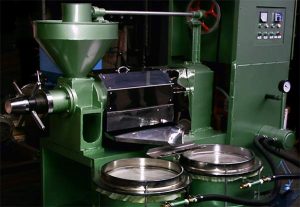Bulk olive oil is shipped to our facilities in stainless tankers is accompanied by the relevant certificate. Then the product in order to maintain its high quality characteristics is stored, in stainless steel reservoirs, under controlled environmental conditions ( temperature, humidity). Different categories of olive oil are stored in different tanks in order to avoid mixing.
 Before the filling process, Olive Oil is gradually cleared by means of plate and diatomite (if necessary) filters. Olive Culture is equipped with a high grade automated line consisting of machinery and instruments of the latest technology.
Before the filling process, Olive Oil is gradually cleared by means of plate and diatomite (if necessary) filters. Olive Culture is equipped with a high grade automated line consisting of machinery and instruments of the latest technology.
The finished product is stored in a designated area which is also controlled in temperature and humidity and every lot/batch is always accompanied by the relevant Certificate of Analysis.
Our Quality Control department is fully equipped and staffed by well informed and experienced personnel. To ensure best quality in our product, in process control tests are performed according to written procedures, established by quality standards.
Olive oil is tested for:
- Acidity (expresses as % Oleic Acid)
- Oxidation level (state of oxidation and age of olive oil)

1) Peroxide number which indicates the state of oxidation of olive oil.
2) Spectrophotometric determination of K232,K270 and DK in ultraviolet.
K232 indicates: a) age of olive oil, b) how long olives have been left in sacks after harvesting c) milling process d) storage conditions of the olive oil and the level of oxidation incurred during production and/or storage. The K270 parameter test detects the level of adulteration ,blends with refined olive oil .
Wax content which detects the level of adulteration with pomace oil
Organoleptic characteristics- panel test ( aroma, taste).
Olive Culture’s chemists take care of the appropriate storage and packaging conditions of olive oil in order to maintain its high quality and ensuring that all European Union regulations and requirements are met.